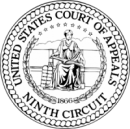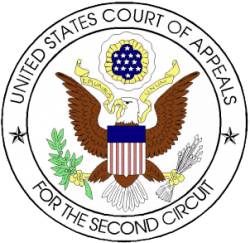The U.S. Court of Appeals for the Eighth Circuit recently affirmed the dismissal of a debtor’s federal Fair Debt Collection Practices Act (FDCPA), federal Fair Credit Reporting Act (FCRA), and state law claims where a debt collector for a major bank pulled the debtor’s credit report and served a garnishment summons after the debtor allegedly had sent a cease-and-desist letter to the debt collector. In so ruling, the Court confirmed that: (1) a debt collector may pull a debtor’s credit report for collection purposes, and that the debt collector did not need to notify the debtor before reviewing such information;…
Posts published in “Debt Collection”
The Annual Consumer Financial Services Conference organized by The Conference on Consumer Finance Law, and co-sponsored by the Loyola University Chicago School of Law, Maurice Wutscher and other law firms, will be held Nov. 19-20, in Chicago. The conference will include presentations by some 45 of the best and brightest speakers and practitioners in the country, on the following topics: TCPA: The New FCC Order Fair Lending and HMDA CFPB Administrative Appeals Arbitration Developments UDAAP Cybersecurity CFPB Regulation of Non-Bank Auto Finance TRID: Issues and Implementation Flood and Lender-Placed Insurance Mortgage Servicing and Bankruptcy State Regulation of Debt Collection/Debt Buyers Credit…
The U.S. Court of Appeals for the Ninth Circuit recently held that a debt collector’s demand seeking 10 percent interest that was not expressly authorized by the debt agreement did not violate the federal Fair Debt Collection Practices Act or California’s equivalent Rosenthal Act, because the pre-judgment interest was permitted by state law. A copy of the opinion is available at: Link to Opinion. The plaintiff incurred a debt for dental services in 2011. The provider referred the debt to a collection agency, which sent a demand letter in May 2012 seeking the principal balance owed, plus interest at 10…
We expect certainty in the law, especially when it comes to a commercial transaction. A valid and enforceable contract should not become unenforceable simply because it was sold. And worse, it should not be unlawful for the buyer to enforce the purchased contract. But that is the decision of the U.S. Court of Appeals for the Second Circuit in Madden v. Midland. The facts are not remarkable. Ms. Madden applied for and received a credit card from Bank of America, a national bank. Bank of America transferred her account to FIA Card Services, also a national bank, who issued her a change…
The FTC and the Office of the New York State Attorney General will host a “Debt Collection Dialogue,” aimed to be a conversation between government and business regarding consumer protection issues within the debt collection industry, in Buffalo, NY, on June 15. FTC Bureau of Consumer Protection Director Jessica Rich and New York State Attorney General Eric Schneiderman will deliver opening remarks. The afternoon program will be held at SUNY Buffalo State and will include a break and a Q&A period. Topics for discussion include recent enforcement actions, compliance issues, and consumer complaints regarding debt collection practices. The event will be the first…
New York’s Department of Financial Services published regulations on Dec. 3, 2014, which would require debt collectors to make additional disclosures to consumers following initial communications, provide consumers who dispute charged-off debt with certain information, adopt procedures concerning the applicability of statutes of limitations, maintain certain records and provide written confirmation of settlements, among other things. The regulations (available here) are applicable to third-party debt collectors (those who collect debts owed to others) and debt-buyers. On Jan. 15, I’ll be discussing the regulations in a DBA International webinar Working with New York’s Latest Debt Collection Regulations (register here). In the meantime, here is a closer look at the regulations. Who…
Like the 80 inches of snow that pummeled Buffalo this week, the crusade against time-barred debt continues to hammer the collection industry. Today the United States Court of Appeals for the Seventh Circuit denied a petition for leave to file an interlocutory appeal in the matter of Patrick v. PYOD, LLC. Earlier this summer, a judge sitting in the United States District Court for the Southern District of Indiana denied a collector’s motion to dismiss an FDCPA complaint based on the filing of a proof of claim on a debt that was beyond the statute of limitations. Relying on Randolph v.…
The Federal Trade Commission has posted seven steps debt brokers should follow to keep data secure on the Bureau of Consumer Protection’s Business Center Blog. This latest guidance comes after the FTC requested that a federal court order two debt brokers that exposed the personal information of more than 70,000 consumers online to notify the consumers and give them direction on how to protect themselves against fraud and identity theft. According to the FTC, two debt brokers violated the FTC Act when they placed the personal information of the consumers, including bank account and credit card numbers, birth dates, employment information and more, on a…








